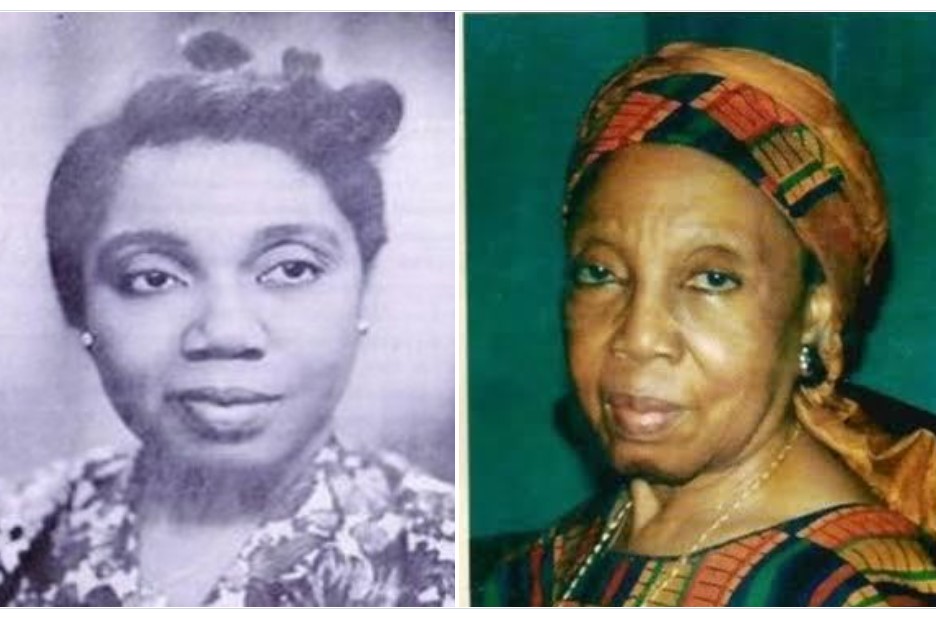Glass ceiling smasher and educational reformer
Lady Kofoworola Ademola was a Nigerian educationalist, writer and advocate for women’s education. As the first Black African woman to be awarded a degree from the University of Oxford, Kofo understood the necessity for women’s education and for international and intercultural relationships.
Kofo studied English Literature and Education at St Hugh’s College, Oxford from 1932 to 1935 and was set on becoming a teacher. Kofo’s time at St Hugh’s College was also significant, in that she paved the way for more black women to study at Oxford. Kofo wrote a biography during her time at Oxford, about her life and experiences, a book which challenged the stereotypes of African people in 1930s Britain. Kofo’s account appeared in colonial civil servant and historian Margery Perham’s 1936 collection, Ten Africans, a book of cultural importance both at its time of publication and today. Kofo understood from her own experience, the benefits of cultural collaboration and felt that meeting people from other cultures would improve peoples’ cultural understanding, providing the potential to create a more peaceable world. With this in mind, Kofo suggested that at least two African women should be admitted to study at Oxford each year.
As the only African woman at Oxford, Kofo said that she was regarded as a “’curio’ or some weird specimen…, not as an ordinary human being.” And that people would make “ineffectual remarks about our ‘amazing cleverness’ at being able to speak English and wear English clothes.” Kofo, here describes the feeling of being ‘othered’ and of being patronised by peoples preconceived expectations and prejudices. Kofo didn’t let the ignorance of others hold her back, she enjoyed an active life at Oxford as a member of several student societies, including the African Society, and the English Literature Club, as well as attending meetings of the Indian Students’ Union and the Oxford Union.
Kofo worked tirelessly to advocate for women’s education and women’s rights more broadly. Having attained her degree from Oxford, she returned to Nigeria to fulfil her ambition of becoming a teacher. Kofo began teaching at a prestigious girl’s school in Lagos and then went on to found two new schools for girls, where she also worked as a teacher and head teacher. She wrote numerous children’s books, often basing her tales in the folklore of West Africa. Her stories include Tortoise and the Clever Ant and Tutu and the Magic Gourds, which form part of the Mudhut Book series.
In 1958, Kofo was elected first president of Nigeria’s National Council of Women’s Societies where she continued to advance the rights and representation of women. She became the first Nigerian woman to be appointed Secretary of the Western Region Scholarship Board, a department of the Ministry of Education. And if that wasn’t enough, she also became Director of the Western Region of the Red Cross. Kofo was extraordinarily tenacious and passionate about reform and was awarded an MBE in Britain in 1959, and an Order of the Federal Republic (OFR) in Nigeria, for her ongoing work and contribution to Nigerian society. Kofo Ademola continued her work up until her death in 2002, at the age of 89.
In March 2020, St Hugh’s College unveiled a picture of Kofo Ademola as part of a celebration of her life and legacy. The College also launched a fund in her honour to support black graduate students and visiting scholars from Africa. St Hugh’s have also launched an annual ‘Lady Ademola Lecture’ series which is delivered annually by an eminent speaker of black, African, or Caribbean heritage who can speak on any topic related to their expertise or experience.
For more information about Kofo Ademola, please visit blackoxford.net who run virtual tours of Oxford’s black scholars, including the amazing Kofo Ademola or Kofo Moore as she was known during her days at Oxford.
Written by volunteer Laura Lys – creator of the Riot Room, a space dedicated to the promotion of women and women-centred culture.
Want to write your own Oxford-inspired post? Sign up as a volunteer blogger.



